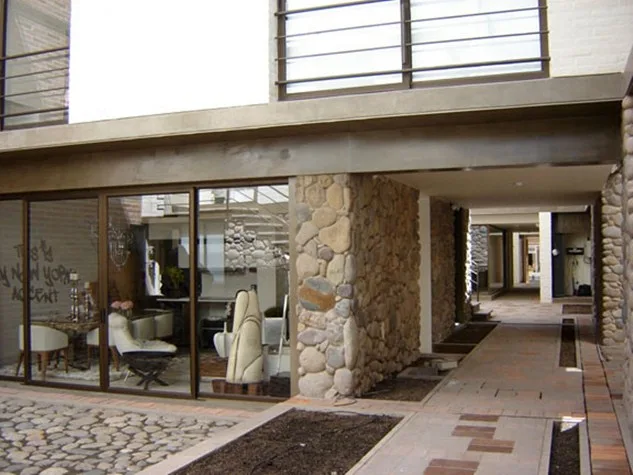Chevron wins Hague arbitration ruling to escape $19 billion verdict; Ecuador says it will continue legal battle
By Paul Barrett
In one of the most geographically profuse pieces of litigation in recent memory, Chevron has taken another step toward escaping a $19 billion pollution verdict imposed in 2011 by a provincial court in Ecuador. The U.S. oil giant’s victory came Tuesday in the form of an interim ruling by an international arbitration panel based in the Hague. The three-person tribunal said the lawsuit that produced the huge verdict—the largest judgment of its kind—lacked a legitimate legal foundation because Ecuador had released the oil company of all potential liability back in the 1990s.

The $19 billion verdict reflected an extraordinary victory for an American trial lawyer named Steven Donziger, one of several attorneys who originally filed a 1993 lawsuit in federal court in New York on behalf of residents of the Ecuadorian rainforest. Donziger & Co. alleged that Texaco had sullied a large swath of the jungle in the 1970s and 1980s, and Texaco fought for nine years to get the case moved to Ecuador. During that procedural battle, Chevron acquired Texaco. U.S. courts eventually agreed to dismiss the suit, and the plaintiffs refiled it in Ecuador in 2003.
Chevron argued that Texaco had done nothing wrong and that any oil pollution was actually the fault of Ecuador’s national oil company, Petroecuador. After years of additional litigation, the Ecuadorian judiciary disagreed and socked Chevron with the 2011 verdict. Chevron, which doesn’t have any assets to speak of in Ecuador, refused to pay up.
In recent months, Chevron has mounted a fierce public relations campaign in Ecuador. In Ecuador it has purchased hundreds of newspaper and website ads titled “Fraude en Ecuador.”
The company accused Donziger of using bribery and coercion in Ecuador to secure the verdict, allegations the attorney has denied. The plaintiffs are seeking to enforce their Ecuadorian verdict in Canada, Argentina, and Brazil. Chevron, meanwhile, has brought the fight back to the U.S., suing Donziger under federal anti-racketeering law in federal court in New York. That case is scheduled to go to trial Oct. 15.
On a separate track, Chevron asked the Permanent Court of Arbitration at the Hague to step into the fray, exercising its authority under the U.S.-Ecuador Bilateral Investment Treaty. The arbitration panel ruled that Donziger’s suit in Ecuador never should have been allowed to proceed because of the Ecuadorian government’s decision in 1998 to release Texaco from all pollution liability in exchange for a partial cleanup of certain production sites. “The game is up,” Chevron’s general counsel, Hewitt Pate, said in an interview. “What this eminent international tribunal has said is what we’ve been saying all along: There was no basis for the lawsuit in the first place. End of story.”
Not so fast, responded a lawyer for the plaintiffs, who have questioned the arbitration panel’s authority to get involved in the case. “The tribunal’s decision illustrates that Chevron can only win when it runs away from legitimate institutions and seeks refuge behind pro-corporate ideologues,” Chris Gowen, an attorney working with Donziger, said via e-mail. “This decision was essentially purchased by Chevron from a completely illegitimate ‘court’ with no authority over the case and the facts.”
The arbitration panel noted that its proceedings will continue, even as Chevron pursues Donziger in court in New York and the plaintiffs pursue Chevron in Canada, Argentina, and Brazil. In the next stage of the arbitration, the panelists will consider whether Ecuador must pay Chevron damages for the company’s having to defend against a lawsuit that, according to the arbitrators, never should have gotten off the ground in the first place. Those damages could reach hundreds of millions or even billions of dollars. Ecuador has vowed it will not bow to the arbitrators or Chevron.
For the foreseeable future, then, the litigation will continue. Theoretical damage amounts will be aired and shot down and floated again. Meanwhile, a visitor to the industrialized rainforest in northeastern Ecuador will find substantial amounts of contamination on the ground, drinking water supplies that are unsanitary, and a lack of adequate health care for tens of thousands of poor Indians and farmers. No one appears close to accepting responsibility for remedying that situation.
The Ecuador embassy in Washington, D.C., issued a statement Thursday disputing Chevron’s interpretation of the arbitration ruling. Ecuador argued that “the tribunal is acting without jurisdiction in applying the terms of a Bilateral Investment Treaty that was entered into force long after the investor voluntarily left the country.” Under the ruling, the embassy added, “indigenous plaintiffs were not precluded from asserting claims ‘in respect of their own individual rights’ with regards to Chevron’s responsibility for oil pollution in Ecuador’s Amazon.”
Credit: Business Week; http://www.businessweek.com; Photo caption: President Rafael Correa shows his oily hand at a site in the jungle; photo credit: El Comercio.


















